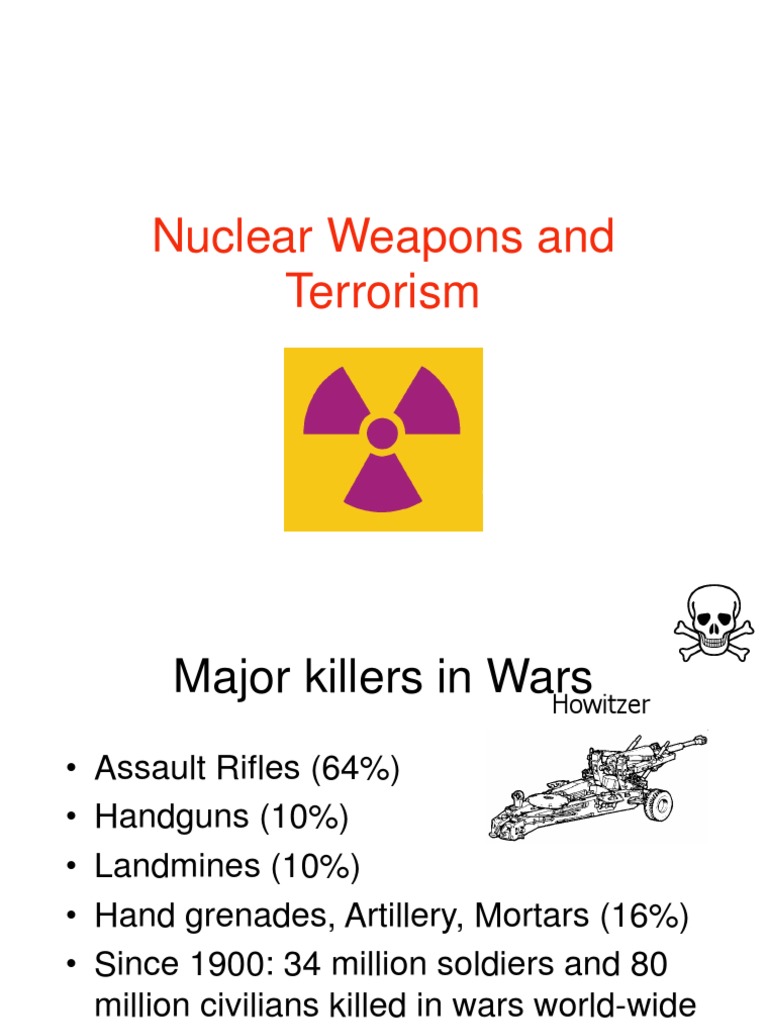Nuclear weapons represent one of the most profound advancements within the realm of military technology, serving a predominant role in global security dynamics. Understanding the fundamental purposes of these weapons entails a multifaceted exploration, encompassing their historical context, deterrent capabilities, and the geopolitical ramifications of their existence. This treatise aims to dissect various dimensions associated with the basic purpose of nuclear weapons, providing insights into their implications for international relations and military strategy.
The primary purpose of nuclear weapons can be succinctly encapsulated in the notion of deterrence. The concept, often referred to as “nuclear deterrence,” posits that the possession of nuclear arsenals serves as a formidable deterrent against potential aggressors. The underlying rationale is grounded in the horrific consequences of nuclear warfare, which can incite existential fears. Thus, states equipped with such weaponry are ostensibly less likely to be attacked, as adversaries recognize the catastrophic repercussions of nuclear retaliation. This strategic doctrine is well-articulated through the principle of “Mutually Assured Destruction” (MAD), a theory that encapsulates the idea that when two or more nuclear-capable states possess the capability to destroy each other completely, the likelihood of conflict is diminished.
Moreover, the development and proliferation of nuclear weapons have been inextricably linked to the pursuit of national prestige and power. Throughout history, nations have sought to augment their geopolitical standing by acquiring nuclear capability. The acquisition of nuclear weapons is often seen as a symbol of technological prowess and national strength. This highlights the complex interplay between nuclear armament and the aspirations of state actors on the global stage. Nations such as India and Pakistan, for example, pursued nuclear programs not only to bolster their security but also to enhance their status as regional powers.
The strategic utility of nuclear weapons extends beyond mere deterrence; they also serve as instruments of coercion and leverage in diplomatic negotiations. In instances of conflict or diplomatic stalemate, the possessors of nuclear weapons may wield their arsenals as bargaining chips, thereby exerting influence over less-armed adversaries. By threatening the use of nuclear weapons, states can extract concessions from opponents, thereby shaping the contours of international diplomacy. This coercive diplomacy underscores the dual-edged nature of nuclear armament; while they may serve as a preventive measure against war, they can also intensify global tensions.
However, the existence of nuclear weapons raises profound ethical and moral dilemmas. The sheer destructive power housed within these arsenals poses significant questions regarding their legitimacy and the humanitarian implications of their use. The catastrophic effects seen in Hiroshima and Nagasaki set a precedent for the consequences of nuclear warfare, igniting ongoing debates regarding moral responsibility. Therefore, a critical discourse emerges on whether the potential for large-scale devastation can ever be justified, even in the name of national security.
The proliferation of nuclear weapons remains a contentious issue in international relations. Treaties such as the Treaty on the Non-Proliferation of Nuclear Weapons (NPT) aim to inhibit the spread of these weapons, promoting disarmament and the peaceful use of nuclear energy. Despite these efforts, the reality is that numerous states have either developed nuclear capabilities or are on the brink of doing so, thus complicating the global security landscape. The risk of nuclear proliferation raises concerns of a potential arms race, where nations may feel compelled to acquire nuclear capabilities in response to their perceived threats, thereby undermining global stability.
Additionally, the capability for a nuclear counterstrike can influence conventional military strategy and alter the calculus of warfare. The repercussions of nuclear retaliation necessitate a reevaluation of traditional military engagements, as nuclear-armed states may opt for less aggressive tactics out of fear for nuclear escalation. This dynamic can create an alarming paradox where conventional conflicts are prolonged or exacerbated due to the presence of nuclear weapons, causing states to exercise caution and restraint that may not be necessary absent such capabilities.
Furthermore, the distinction between tactical and strategic nuclear weapons complicates the discussion surrounding their purpose. Tactical nuclear weapons, designed for battlefield use, could potentially lower the threshold for nuclear engagement, thereby influencing military calculations in regional conflicts. In contrast, strategic nuclear weapons typically serve as deterrents and retaliatory measures against existential threats. The existence of both categories necessitates a profound understanding of how they can be employed within military doctrines and how they affect the stability of international order.
In conclusion, the basic purpose of nuclear weapons transcends mere destruction—they are pivotal in shaping global power dynamics, influencing military strategy, and dictating diplomatic interactions. Their role as instruments of deterrence is juxtaposed with the moral quandaries they bring forth, highlighting the complexities surrounding their existence. As the international community grapples with the challenges posed by nuclear proliferation, the need for robust dialogues and actionable disarmament initiatives has never been more pressing. Understanding the myriad roles fulfilled by nuclear weapons is crucial for navigating the treacherous waters of contemporary geopolitics and fostering a more secure global environment.












